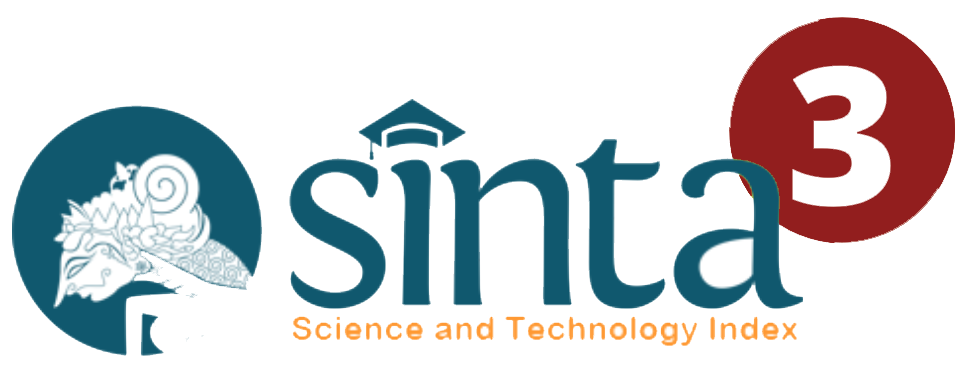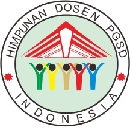A LESSON DESIGN OF ALGEBRAIC THINKING IN ELEMENTARY SCHOOL AS AN EFFORTS TO DEVELOP MATHEMATICAL LITERATION IN INDUSTRIAL ERA 4.0
DOI:
https://doi.org/10.22460/pej.v3i2.1376Abstract
Algebraic thinking is one of the abilities needed in the industrial era 4.0. The efforts to instill algebraic thinking need to be done since elementary school students. Before students learn about algebra, they must have a lot of experience in making representations, abstractions, and generalizations. The ability to represent data using tables and diagrams is one indicator of algebraic thinking. This research was conducted discovery of learning obstacles thinking algebra by representing data using tables and diagrams in elementary school. Learning obstacles include ontogenically obstacles, epistemological obstacles, and didactical obstacles. Therefore, it is necessary to develop didactic designs to overcome these learning obstacles. The research method used was Didactical Design Research (DDR). This research was conducted by analyzing learning obstacles that were found to be used as the development of learning trajectories. The analysis process produces alternative didactic situations that can overcome obstacles in thinking algebra. Given that algebraic thinking in the curriculum in elementary schools is still implied, it is necessary to develop a comprehensive lesson design to facilitate students in developing algebraic thinking. The ability to think algebra is the high order thinking skills, they need to face various challenges today.References
Alghtani, O.A. & Abdulhamied, N.A. (2010). The effectiveness of geometric representative approach in developing algebraic thinking of fourth grade students. Procedia - Social and Behavioral Sciences, 8 (5), 256–263. https://doi.org/10.1016/j.sbspro.2010.12.035
Booker, G., & Windsor, W. (2010). Developing algebrain c thinking: Using problem-solving to build from number and geometry in the primary school to the ideas that underpin algebra in high school and beyond. Procedia - Social and Behavioral Sciences, 8(5), 411–419. https://doi.org/10.1016/j.sbspro. 2010.12.057
Brousseau, G. (2002). Epistemological Obstacles, Problems, and Didactical Engineering . Theory of Didactical Situations in Mathematics: Didactique Des MathEmatiques, 1970-1990 , (1 983), 79–117. Cai, J. (2004). Developing Algebraic Thinking in the Earlier Grades : A Case Study of the Chinese Elementary School Curriculum 1. The Mathematics Educator, 8(1), 107–130.
Fong, N. S. (2004). Developing Algebraic Thinking in Early Grades: Case Study of The Singapore Primary Mathematics Curriculum. The Mathematics Educator. Vol. 8 No. 1. 39-59.
Harel, G. 2008. What Is Mathematics? A Pedagogical Answer to a Philosophical Question. (PP 1-26) Washington: The Mathematical Association of America, Inc.
Herutomo, R. A. & Saputro, T. E. M. (2014). Analisis Kesalahan dan Miskonsepsi Siswa Kelas VII Pada Materi Aljabar. Edusentris, Jurnal Ilmu Pendidikan dan Pengajaran, Vol. 1 No. 2, hal. 134-145.
Hernandez, I., Levy, R. & Brown, S. (2010). Algebraic Reasoning in Elementary School Students. USA: Harvey Mud
Hidayati, F. (2010). Kajian Kesulitan Belajar Siswa Kelas VII SMP Negeri 16 Yogyakarta dalam Mempelajari Aljabar. Skripsi Universitas negeri Yogyakarta. Dipublikasikan
Kilpatrick, J., Swafford, J. & Fidell, B. (2001). Adding It Up: Helping Children Learn Mathematics. Washington, DC: national Academy Press.
Lew, H. C. (2004). Developing Algebraic Thinking in Early Grades: Case Study of Korean Elementary School Mathematics. The Mathematics Educator. Vol. 8 No. 1. 88-106.
Marsetyorini, A. D. & Murwaningtyas, C. E. (2012). Diagnosis Kesulitan Belajar Siswa dan Pembelajaran Remedial dalam Materi Operasi Pada Pecahan Bentuk Aljabar Di Kelas VIII SMPN 2 Jetis Bantul. Prosiding Makalah dipresentasikan dalam Seminar nasional Matematika dan Pendidikan Matematika “Kontribusi Pendidikan Matematika dan Matematika dalam Membangun Karakter Guru dan Siswaâ€. Jurusan Pendidikan Matematika FPMIPA UNY
Mestre, C, & Oliveira, H. (2012). From Quasi-Variable Thinking to Algebraic Thinking: A Study With Grade 4 Students. [Online]. Diakses dari http://repositorio.ul.pt/bitstream/ 10451 /7087/1/Mestre_Oliveira_ICME12.pdf
Moyer, J., Huinker, D. A. & Cai, F. (2004). Developing Algebraic Thinking in the Earlier Grades: A Case Study of the U.S. Investigations Curriculum. The Mathematics Educator. Vol. 8 No. 1. 6-38.
NCTM. (2000). Principles and Standards for School Mathematics. Reston, V.A: NCTM.
NCTM. (2014). Principles to Actions: Ensuring Mathematical Success for All. Reston, V.A: NCTM.
NCTM. (2000). Principles and Standards for School Mathematics. Reston, V.A: NCTM.
Permatasari, B. A. D., dkk. (2015). Analisis Kesulitan Siswa dalam Menyelesaikan Soal Materi Aljabar Siswa Kelas VIII SMP Negeri 2 Bangil. Kadikma, Vol. 6, No. 2, hal 119-130.
Pratiwi, V., Herman, T., dan Suryadi, D. (2017). Upper Elementary Grades Students’ Algebraic Thinking Ability In Indonesia. IJAEDU- International E-Journal of Advances in Education. 3 (9) 705-715
Pratiwi, V., Herman, T., dan Suryadi, D. (2019). Algebraic thinking obstacles of elementary school students: A Hermeneutics-phenomenology study. IOP Publishing Journal of Physics: Conference Series. 1157 (3) 032115
Radford, L. (2010). Elementary Forms of Algebraic Thinking in Young Students. In M. F. Pinto. & T. F. Kawasaki (Eds.). Proceedings of the 34th Conference of the International Group for the Psychology of Mathematics Education, Vol. 4, pp. 73-80. Belo Horizonte, Brazil: PME.
Radford, L. (2011). Embodiment, perception and symbols in the development of early algebraic thinking. In Ubuz, B. (Ed.), Proceedings of the 35th Conference of the International Group for the Psychology of Mathematics Education (Vol. 4, pp. 17-24). Ankara, Turkey: PME.
Radford, L. (2012a). Early Algebraic Thinking Epistemological, Semiotic, and Developmental Issues. 12th International Congress on Mathematical Education, Seoul, South Korea.
Suherman, E., dkk. (2003). Strategi Pembelajaran Matematika Kontemporer (Common Text Book Edisi Revisi). Bandung: Jica
Suryadi, D. (2010). Didactical Design Research (DDR) Dalam Pengembangan Pembelajaran Matematika1. Seminar Nasional Pembelajaran MIPA Di UM Malang, 13 November 2010 SEMNAS MIPA 2010 UTAMA, (November), 1–75.










